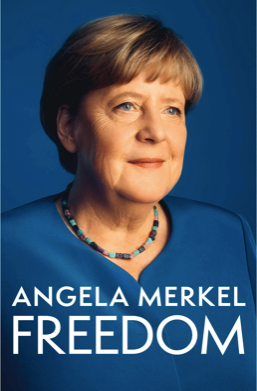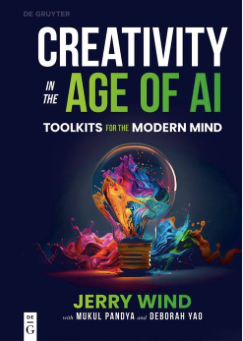Book Review: Merkel, A., (2024), Freedom, Macmillan
- Peter Lorange
- Aug 15, 2025
- 5 min read

This book, authored by former German Chancellor, Angela Merkel, is a very important one. This reviewer is impressed with the clarity that she comes across with throughout the book. The author has an incredible memory, going into considerable detail when it comes to what she has been involved in both before her time as Chancellor, up until 2005, and particularly during her 16-year period as Chancellor of Germany. But the book is perhaps a little bit too long (700 pages), with too many details, names, locations and abbreviations.
As noted, Dr. Merkel was Chancellor from 2005 until 2021. She grew up in East Germany, where she studied physics and earned a doctorate in 1978. From 1990 until 2021 she was a member of the German Bundestag. She was a member of a German government, serving as minister of women and youth from 1994 to 1998 and as minister of Environment, Nature Conservation and Nuclear Safety. She was a leader of Germany’s Christian Democratic party from 2000 until 2018. She retired from politics in 2021.
As noted, this book is rather long and (perhaps too) detailed. When she prepared the book in 2023, Merkel set out to cover some 71 key issues, ordered from a to Z (pp 321-331). The first 100 pages of the book seem particularly lengthy to this reviewer, covering the time when Merkel grew up until East Germany’s collapse at the end of 1989. But Dr. Merkel’s apparent sympathetic views on the East, including on Mr. Putin, can perhaps be traced back to this time, with her liking many aspects of East German life, and with her command of the Russian language, despite of her clear stance for freedom, not found in the East.
It shall simply be too much detail to systematically review the book chapter by chapter. Instead, I shall concentrate on a few critical happenings where Dr. Merkel has been involved.
First, let us review why Dr. Merkel decided to join the German Catholic Party (CDU). She had originally been a member of the smaller East German DA Party (Democratic Awakening). But this party did very poorly in the late 80’s regional electives. And, since CDU had a similar program, she switched to this party. Dr. Merkel succeeded Helmut Kohl when he had to step down in early 2000 due to a corruption scandal.
In 2015 Dr. Merkel’s government opened for the submission of around one million refugees, mostly from Africa. This decision drew sever criticism, but Dr. Merkel defended her decision based on three concerns:
- Refugees. To be willing to stand up and support fellow humans cum refugees who might be in sever difficulties, economic and/or political, was seen as absolutely critical. In her opinion there would simply be no choice!
- Noone who decides to leave their own country might be assumed to take such a decision lightly. This would add credence to accepting refugees who come together, in contrast to criminals and/or those smuggled in with the help of profiteers.
- Germany is a country of immigration. The strong economic performance of Germany could only come about because of available (immigrant) labor forces, and Dr. Merkel was intending to do her best for this growth to continue.
But Dr. Merkel’s immigration policy seemed to represent a decisive turning point in her chancellorship, above all due to much more polarization of opinions. But despite this, she decided to stand for re-election for a third term in early 2016, and she won again.
Dr. Merkel was heavily involved in the so-called Brexit issue, with her support of the UK for remaining in the EU, and thus of then Prime Minister Cameron’s position. But, to her regret, the UK voted narrowly to leave the EU in June 2016, Mr. Cameron resigned. Dr. Merkel became quite heavily criticized by several of EU’s other leaders, even isolated. In the end, there was nothing that Germany could do.
The Paris Agreement attempted to regulate CO2 emissions, thereby gaining more control over rises in temperatures and degradation of climate. This entailed that a leading country such as Germany, would reduce its CO2 emissions by 40% by 2020 to 80-90% by 2050. Dr. Merkel played a major role, nonetheleast by influencing China and Russia. She was disappointed of course that t target of reducing temperatures has not been met by the time that she stepped down in 2021.
Dr. Merkel was never a fan of Donald Trump, USA’s President from 2016 t0 2020. She felt that Trump’s “America First” approach tended to come at the expense of cooperations among nations that Dr. Merkel saw as key. She felt tat him behavior was perhaps too similar to what he had been practiced before – real estate development. If you loose on particular project, you simply move on. This was not only the way Dr. Merkel saw it, with diplomacy for coming up with “win-win” solutions. President Trump also threatened to have the US withdraw from NATO, which would have had severe negative effects on Germany.
The so-called Fukushima atomic energy disaster in Japan in 2011 led to a revision in Dr. Merkel’s mind when it came to accepting nuclear power plants. She now increasingly felt that nuclear power might no longer be sufficiently safe. All of Germany’s seven power plants then in operation were soon thereafter shut down. Further, no new nuclear power plants were to be agreed upon.
Natural gas. Russia had gradually built up its position as the major supplier of natural gas to Germany. This was before Russia’s attack on Ukraine in early 2022. Dr. Merkel had actively supported Russia as a major supplier. The construction of the two large gas pipelines from outside St. Petersburg to Emden, had been largely the brainchild of Dr. Merkel’s forerunner, Mr. Gerhard Schröder. This significantly increased Russia’s position as a major supplier. Dr. Merkel got a lot of criticism for her pro-Russian stance on natural gas after Russia’s attach on Ukraine. She became fully omitted to increasing German input from the Netherlands and Norway, cutting out Russia. This process was initially painful to much of Germany, but ultimately seemed to work.
Dr. Merkel was a strong proponent of the so-called “two state” solution as a way of ameliorating the conflict between Israel and the Palestinians, being in line with former President Shimon Peres and former Prime Minister Ehad Olmart. But she resigned before the present shift towards a one-state approach to solving the conflict could come into effect, as proposed by the new Prime Minister Netanyahu.
The pandemic was a great challenge for many, including Dr. Merkel. As we know, the pandemic broke out in Wuhan, China in 2019, and continued for more than two years. Germany was early in mandating vaccinations, and while much of Germany’s economy had to close down, the dysfunctional economic effects were much smaller than for many other countries. Dr. Merkel was widely criticized for coming up with good policies!
Ukraine. Russia’s attack on Ukraine came in early 2022, just after Dr. Merkel has stepped down as Germany’s Chancellor. As became clear form the last section of the book, however, Dr. Merkel strongly condemned this. She was entirely in favor of isolating the Russians as much as possible. Although she does not say this directly, this shift must have been a “bitter pill” for her, having earlier been a strong proponent of appeasement with the East.
After having out down this 700-page book, I am left with a strong positive feeling for what Dr. Angela Merkel has done. Her ambition and drive came across clearly in the book. And she was clearly a brilliant leader of her country. She shall be remembered with fondness for a long time. And, this book should be read by many, to uphold this positive image! A must read!




Comments